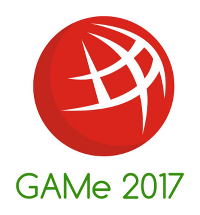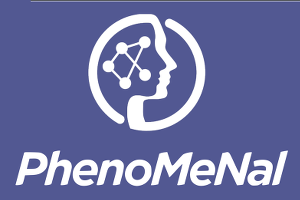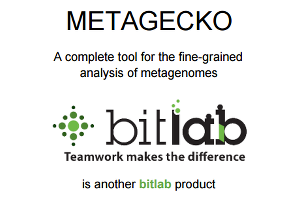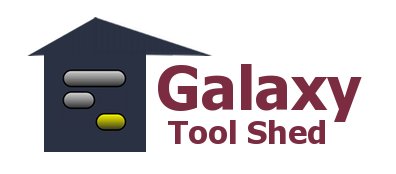December 2016 Galaxy News
Welcome to the December 2016 Galactic News, a summary of what is going on in the Galaxy community.
If you have anything to include in the next News, please send it to [Galaxy Outreach](mailto:outreach AT galaxyproject DOT org).
Galaxy Community Hub (the Hub)
You may have noticed that the Galaxy community site / wiki is moving. We are midway through a transformation of our old MoinMoin based wiki into a GitHub based site refered to as the Community Hub, or just the Hub. (Note: This name may be temporary.)
And we need your help to finish the move.
The Hub uses GitHub Flavored Markdown for markup, and Metalsmith for web site rendering and for semi-structured content (such as the Events page). The new platform offers the strength of our old wiki (easy contribution) with a markup language many more people know, easy programmatic access, and all the strengths of GitHub.
Once the Hub is in better shape it will become the galaxyproject.org site. Until then you can find it at new.galaxyproject.org. Once the move is complete and the old wiki will be shut down.
Content was automatically converted from MoinMoin and Creole markup to Markdown, and many other things were also cleaned up in the process. However, the automatic translation stumbled in some places and the cleanup and general restructuring are far from done. We also aren't yet taking advantage of Metalsmith to render semi-structured content and page metadata.
The Community Hub Contribution Convergence (CHCC): Thursday December 8
To address these issues we are holding the Community Hub Contribution Convergence (CHCC) online this week on Thursday December 8. The goals of CHCC are to
- Get participants up to speed on how to update the new site.
- Create / improve documentation on how to update the new site.
- Fix translation errors and things that were accidentally dropped
- Generally reorganize and update documentation.
- Drop obsolete material
- Work out plans and best practices for supporting semi-structured content and page metadata.
CHCC will use GitHub to coordinate work, and a Matrix channel for communication during the event. Interested? Please join us.
Events
In addition to CHCC there are a wealth of events coming up. Here are some highlights:
Galaxy Australasia Meeting (GAMe 2017)
GAMe 2017 will bring together biomedical researchers, bioinformaticians, infrastructure providers, and data producers from across Australia and Asia to share expertise across many levels.
This meeting features three distinct events:
- Researcher Training Day on 3 February, aimed at biomedical researchers who need to analyse their biological data
- The GAMe 2017 Conference starts 4 February and features two full days of keynotes, accepted and sponsor talks, poster and sponsor sessions, birds-of-a-feather gatherings, a conference dinner and lots of opportunities for networking.
-
Each day has a theme, and participants can register for one or both days.
- A four day workshop on Galaxy server administration runs 5-9 February. This is the 2nd time this workshop has been offered. The first time was last month and it was very well received. Don't miss your chance to attend.
Keynote Speakers
We are pleased to announce that the keynote speakers for GAMe 2017 will be James Taylor and Björn Grüning. These two probably don't need introductions in a Galaxy newsletter, but here are some brief ones anyway:
Dr James Taylor is the Ralph S. O’Connor Associate Professor of Biology and associate professor of computer science at Johns Hopkins University. He is a Galaxy Project PI, and one of the original developers of the Galaxy platform for data analysis. His group works on extending the Galaxy platform, and understanding genomic and epigenomic regulation of gene transcription through integrated analysis of functional genomic data.
Dr Björn Grüning is with the Bioinformatics Group at Albert-Ludwigs-Universität Freiburg, in Freiburg Germany, where he heads the Freiburg Galaxy Project. His publication list includes several papers that feature Galaxy prominently, including the recent “Enhancing pre-defined workflows with ad hoc analytics using Galaxy, Docker and Jupyter” (Grüning, et al, 2016. He is a prominent contributor to, and is a driving force in, the Galaxy community. In the past year alone, he helped organize the Bioconda Contribution Fest, Swiss-German Galaxy Days, the Galaxy Training Materials Contribution Fest, the Galaxy DevOps Workshop, and the Conda Dependencies Codefest, and presented and taught at GCC2016. His research interests include data visualisation, computational chemistry, and drug discovery.
ORAL Presentation Abstracts Deadline Extended to 14 December
Accepted talks will be presented during the 2-day conference, 4-5 February. Talks are 15-20 minutes long and the meeting is single track.
Oral presentation abstract submission has been extended to 14 December 2016. Abstracts are limited to 250 words.
Early Registration ends 31 December
Early registration is open until 31 December. Register now and save up to 43% off regular registration rates.
Poster Submission
Poster abstract submission is open until we run out of poster space. Abstracts are limited to 250 words. Poster abstracts are reviewed on a rolling basis and submitters will be notified of the decision within two weeks of the abstract’s submission date.
All upcoming events
There are a plenitude of Galaxy related events coming up in the next few months:
| |
Designates a training event offered by GTN member(s) |
See the Galaxy Events Google Calendar for details on other events of interest to the community.
New Publications
60 new publications referencing, using, extending, and implementing Galaxy were added to the Galaxy CiteULike Group in November.
Some highlights from last month:
- A guide and best practices for R/Bioconductor tool integration in Galaxy, Nitesh Turaga, Mallory A. Freeberg, Dannon Baker, John Chilton, Galaxy Team, Anton Nekrutenko, James Taylor, F1000Research 2016, 5:2757 (doi: 10.12688/f1000research.9821.1)
- How Are You – and How’s Your Microbiome?, Pratik Jagtap, The Analytical Scientist, November 2016
- Computational workflow for the fine-grained analysis of metagenomic samples, Esteban Pérez-Wohlfeil, Jose A. Arjona-Medina, Oscar Torreno, Eugenia Ulzurrun, Oswaldo Trelles, BMC Genomics, Vol. 17, No. S8. (25 October 2016), doi:10.1186/s12864-016-3063-x
- Big Data Smart Socket (BDSS): A System that Abstracts Data Transfer Habits from End Users, Nick A. Watts, Frank A. Feltus, Bioinformatics (26 October 2016), btw679, doi:10.1093/bioinformatics/btw679
- DNA Data Bank of Japan, Jun Mashima, Yuichi Kodama, Takatomo Fujisawa, et al., Nucleic Acids Research (24 October 2016), gkw1001, doi:10.1093/nar/gkw1001
- TP53 gene mutation analysis in chronic lymphocytic leukemia by nanopore MinION sequencing, Crescenzio F. Minervini, Cosimo Cumbo, Paola Orsini, et al., Diagnostic Pathology, Vol. 11, No. 1. (10 October 2016), doi:10.1186/s13000-016-0550-y
- An application suite based on the IFB Container as a Service platform, Francois Moreews, Olivier Sallou, Olivier Collin, In {ECCB 2016} (September 2016)
- The highly variable microbiota associated to intestinal mucosa correlates with growth and hypoxia resistance of sea bass, Dicentrarchus labrax, submitted to different nutritional histories, François-Joël Gatesoupe, Christine Huelvan, Nicolas Le Bayon, et al., BMC Microbiology, Vol. 16, No. 1. (8 November 2016), doi:10.1186/s12866-016-0885-2
Tagged Publications
The new papers were tagged with:
| # | Tag | # | Tag | # | Tag | # | Tag | |||
|---|---|---|---|---|---|---|---|---|---|---|
| 1 | Cloud | 2 | Other | -3 | Shared | 5 | UseMain | |||
| - | HowTo | - | Project | 2 | Tools | 10 | UsePublic | |||
| 3 | IsGalaxy | 7 | RefPublic | - | UseCloud | - | Visualization | |||
| 28 | Methods | 1 | Reproducibility | 5 | UseLocal | 19 | Workbench |
Who's Hiring
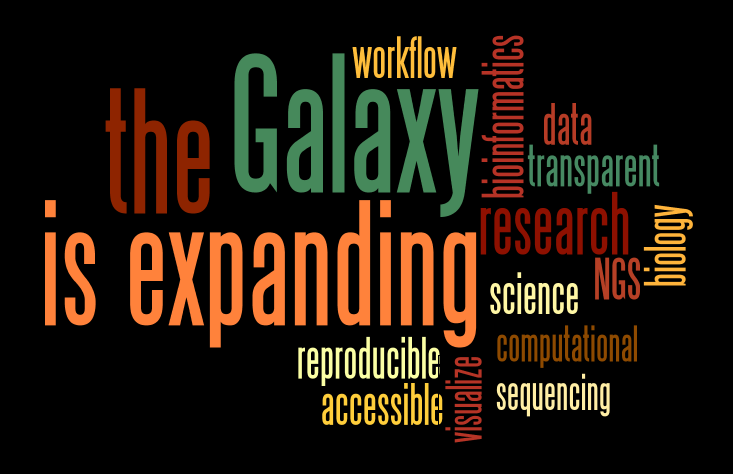
The Galaxy is expanding! Please help it grow.
- Bioinformatics Analyst, National National Center for Genome Analysis Support (NCGAS), Bloomington, Indiana, United States
- Development Scientist (Bioinformatics), New England Biolabs, Ipswich, Massachusetts, United States.
- 6 month position at Public Health England working National Microbiology Laboratory in Canada to compare antimicrobial resistance isolates and software using IRIDA/Galaxy
- Postdoctoral Research Position, Multiomic Bioinformatics, University of Minnesota
Got a Galaxy-related opening? Send it to outreach@galaxyproject.org and we'll put it in the Galaxy News feed and include it in next month's update.
Public Galaxy Server News
There are over 80 publicly accessible Galaxy servers and five semi-public Galaxy services. Here's what happened with them in November.
New Public Galaxy Servers
PhenoMeNal
-
Link:
- PhenoMeNal server
-
Domain/Purpose:
- Large scale computing for medical informatics
-
Comments:
- "The PhenoMeNal Galaxy installation allows users to access all of the PhenoMeNal containerised tools through a workflow environment, on an scalable infrastructure that can be deployed to public and private cloud installations.
This PhenoMeNal H2020 Galaxy instance, and all of its tools, run as containers on top of Kubernetes, an open source container orchestrator system backed by Google. If you wish to deploy the PhenoMeNal Galaxy installation on top of your own Kubernetes instance, you can find instructions at our wiki.
- "The PhenoMeNal Galaxy installation allows users to access all of the PhenoMeNal containerised tools through a workflow environment, on an scalable infrastructure that can be deployed to public and private cloud installations.
-
User Support:
- Quotas:
-
Sponsor(s):
- The PhenoMeNal consortium is driven by 14 European research groups with strong experience in the development of tools and methods for large data acquisition, integration and analysis for metabolic phenotypes, genome and cross-omics data.
- PhenoMeNal is funded by European Commission's Horizon2020 programme, grant agreement number 654241.
BitLAB
-
Link:
-
Domain/Purpose:
- Detailed analysis of metagenomes.
-
Comments:
- From Computational workflow for the fine-grained analysis of metagenomic samples by Esteban Pérez-Wohlfeil, Jose A. Arjona-Medina, Oscar Torreno, Eugenia Ulzurrun and Oswaldo Trelles, BMC Genomics 2016 17(Suppl 8):802 DOI: 10.1186/s12864-016-3063-x " ... provides new tools and datafile specifications that facilitate the identification of differences in abundance of reads assigned to taxa (mapping), enables the detection of reads of low-abundance bacteria (producing evidence of their presence), provides new concepts for filtering spurious matches, etc. Innovative visualization ideas for improved display of metagenomic diversity are also proposed to better understand how reads are mapped to taxa."
-
User Support:
- There is an extensive tutorial on how to use the server.
-
Quotas:
- Must create a login to use it.
-
Sponsor(s):
Galaxy Community Hubs
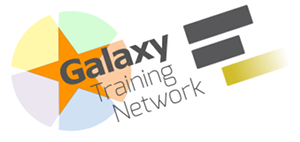 |
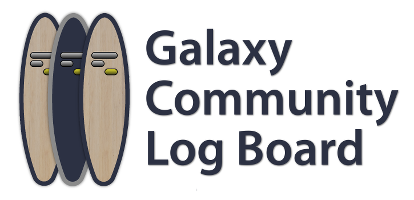 |
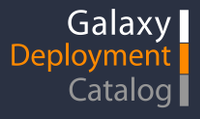 |
| Share your training resources and experience now | Share your experience now |
No new resources were added to community hubs in November.
Releases
Planemo 0.35.0
Planemo is a set of command-line utilities to assist in building tools for the Galaxy project. This release included native support for building bioconductor tools and recipes, fixes for running Galaxy via docker-galaxy-stable and Import order linting fixes
See GitHub for details.
Pulsar 0.7.3
A Pulsar update was released in October. Pulsar is a Python server application that allows a Galaxy server to run jobs on remote systems (including Windows) without requiring a shared mounted file systems. Unlike traditional Galaxy job runners - input files, scripts, and config files may be transferred to the remote system, the job is executed, and the results are transferred back to the Galaxy server - eliminating the need for a shared file system.
Earlier Releases
Other packages that have been released in the prior 4 months.
Galaxy v16.07
The Galaxy Committers team is pleased to announce the July 2016 (v16.07) release of Galaxy.
Highlights
Shift of Galaxy tool dependencies to Conda
Galaxy admins obtained the ability to install Galaxy tool’s dependencies using the Conda package manager. This is a Beta feature and we encourage interested deployers to opt-in by modifying configuration. Documentation that explains this switch and answers FAQ is available.
Dynamic tool destinations
Our friends from Canada National Microbiology Laboratory enhanced Galaxy with feature that allows dynamic mapping of tools to destinations based on finer grained admin-specified rules. Please see the wiki. Implemented in PR #2579.
Galaxy chat
Admins can now plug in the included communication server to enable users of their instance to use real-time chat within the Galaxy interface. Please see the documentation to learn how to activate and use this feature. Implemented in PR #2515.
New Galaxy repository
$ git clone -b release_16.07 https://github.com/galaxyproject/galaxy.git
Update of existing Galaxy repository
$ git checkout release_16.07 && git pull --ff-only origin release_16.07
See our wiki for additional details regarding the source code locations.
See the full release notes for more.
Galaxy Docker Image 16.07
And, thanks to Björn Grüning, there is also now a Docker image for Galaxy 16.07 as well.
galaxy-lib 16.10.10
galaxy-lib is a subset of the Galaxy core code base designed to be used as a library. This subset has minimal dependencies and should be Python 3 compatible. It's available from GitHub and PyPi.
The October releases (8 of them!) added mulled and Conda enhancements.
CloudBridge 0.1.1
CloudBridge provides a simple layer of abstraction over different cloud providers, reducing or eliminating the need to write conditional code for each cloud. The latest release adds support for advanced networking management and OpenStack Keystone v3 support (required to use NSF Jetstream cloud).
BioBlend 0.8.0
BioBlend is a Python library for interacting with CloudMan and Galaxy‘s API. BioBlend makes it possible to script and automate the process of cloud infrastructure provisioning and scaling via CloudMan, and running of analyses via Galaxy.
See the release notes for what's new in release 0.8.0.
And the rest ...
Other Galaxy packages that haven't had a release in the past four months can be found on GitHub.
ToolShed Contributions
Didn't get there this month.
Other News
-
From Ryan Morin:
- We are looking for volunteer beta testers for our Cancer Genomics Galaxy Docker flavour.
- Want to use Galaxy on Jetstream? Learn how to Write a Successful XSEDE Allocation Proposal, December 13
-
From Peter Briggs:
- Nebulizer 0.4.0: utilities for managing users, tools and libraries in Galaxy now available from PyPI
-
From Enis Afgan:
-
From Chase Miller

